Betta fish are a popular choice for aquarium enthusiasts. They are known for their vibrant colors and active personalities. However, feeding them can be a bit tricky. One common question that arises is can betta fish eat tropical flakes? In this article, we will explore this question in detail.
Tropical flakes for Betta Fish
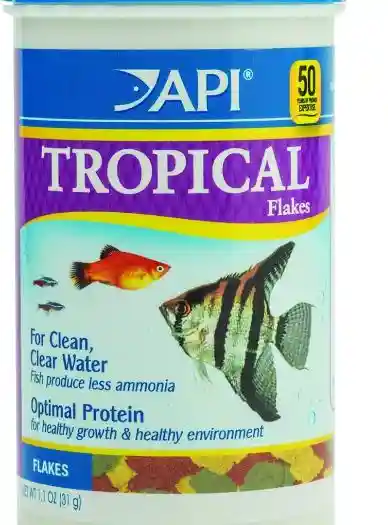
Tropical flakes are a popular type of fish food that is widely available in the market. They are formulated to provide a balanced diet for fish and contain all the key nutritional ingredients that tropical fish need to thrive. However, betta fish have a unique diet that is primarily carnivorous. So, can betta fish eat tropical flakes? Let’s find out.
Can Betta Fish Eat Tropical Flakes?
The answer to this question is both yes and no. While betta fish can eat tropical flakes, they are not the best choice of diet for your pet. Most tropical flakes contain mostly plant-based proteins and fillers, such as soy and wheat.
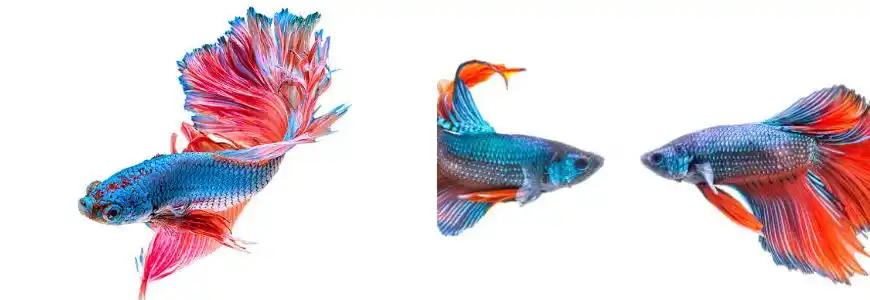
So, many tropical flakes are relatively low in protein, which doesn’t suit a betta fish’s nutritional needs. Moreover, feeding your betta a diet of primarily dried foods, such as tropical flakes, often causes digestive tract problems, including constipation and bloating.
What Foods Are Best for Betta Fish?
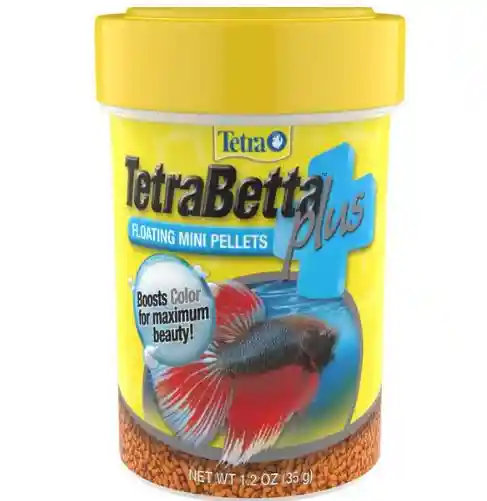
Your betta’s diet should be primarily meat-based, with a small amount of plant matter. We generally recommend offering your betta pet commercial food, such as betta mini pellets, as a basic diet.

Betta pellets are specially formulated for the nutritional needs of betta fish while catering to their sensitive digestion. Mini betta pellets are also the perfect size for your betta’s tiny mouth. Betta fish have upturned mouths that are designed for surface feeding, so betta pellets are designed to float on the water’s surface. In addition to pellets, you should include the following in your betta’s diet:
- Bloodworms: These tiny, red worms are midge larvae that live in poorly oxygenated water. Although you can buy bloodworms as live food in some pet stores, we recommend that you feed your betta frozen or freeze-dried bloodworms.
- Live foods often come with an unwanted cargo of parasites and bacteria that could make your betta buddy sick.
How often should I feed my betta fish?
Feeding your betta fish the right amount of food is crucial to their health. Overfeeding your fish can cause serious health problems, as well as polluting the aquarium water and increasing the bioload on your filtration system. On the other hand, underfeeding your fish can lead to malnutrition and other health issues.
Ideally, you should feed your betta twice a day, and you can even split the food amount up into three daily feedings if you want to. Your betta needs food to maintain energy and health. However, it’s important to fast your betta every 1–2 weeks. This will help keep your betta healthy and happy.
What is the best time to feed my betta fish?
Feeding your betta fish at the right time is important to maintain their health and happiness. According to ibcbettas.org, it is best to feed your betta fish twice a day, once in the morning and once in the evening. You can even split the food amount into three daily feedings if you want to. However, fast your betta every 1–2 weeks. This will help keep your betta healthy and happy.
Feeding Schedule for betta fish
| Day of the Week | Quantity & Types of Food |
|---|---|
| Monday | Fasting |
| Tuesday | 2–3 pieces of live, frozen, or freeze-dried food 1–2 times a day |
| Wednesday | 2–3 pieces betta pellets 1–2 times a day |
| Thursday | 2–3 pieces of live, frozen, or freeze-dried food 1–2 times a day |
| Friday | 2–3 pieces betta pellets 1–2 times a day |
| Saturday | 2–3 pieces of live, frozen, or freeze-dried food 1–2 times a day |
| Sunday | 2–3 pieces betta pellets 1–2 times a day |
Why is my betta fish not eating flakes?
Betta fish are primarily carnivorous and require a diet that is rich in protein. Most fish flakes contain mostly plant-based proteins and fillers, such as soy and wheat. So, many fish flakes are relatively low in protein, which doesn’t suit a betta fish’s nutritional needs. Moreover, feeding your betta a diet of primarily dried foods, such as fish flakes, often causes digestive tract problems, including constipation and bloating.
Instead, we recommend feeding your betta pet commercial food, such as betta mini pellets, as a basic diet. In addition to pellets, you should include the following in your betta’s diet: bloodworms, brine shrimp, and daphnia.
Conclusion
So, can betta fish eat tropical flakes? Yes, they can. However, that’s not the best choice of diet for your pet. Ideally, you should feed your betta buddy a varied diet of mini floating betta pellets, frozen foods, and some rehydrated, freeze-dried bloodworms. Include one day per week when your betta doesn’t receive any food at all. This will help keep your betta healthy and happy.
Frequently Asked Questions (FAQs)
-
Why is my betta so fat?
Overfeeding is the most common cause of obesity in betta fish. Feeding your betta too much food or too often can lead to serious health problems, such as bloating, constipation, and swimbladder disease. It is important to feed your betta the right amount of food and to fast them every 1-2 weeks.
-
How do I make my betta fish happy?
To make your betta fish happy, you should provide them with a clean and spacious tank, a varied and nutritious diet, and plenty of hiding places and decorations. You should also avoid overfeeding your betta and maintain a consistent feeding schedule. Finally, you should interact with your betta regularly and provide them with mental stimulation, such as toys and puzzles.
-
What can betta fish eat of human food?
Betta fish can eat boiled peas (with no shell), cucumber, lettuce, boiled or cooked spinach, and boiled corn seeds. However, it is important to remember that human food should only be given as a treat and not as a substitute for a balanced diet.

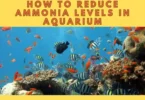
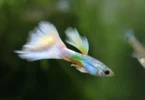
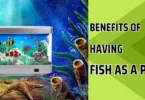
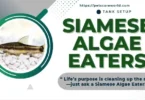
Leave a Comment
You must be logged in to post a comment.